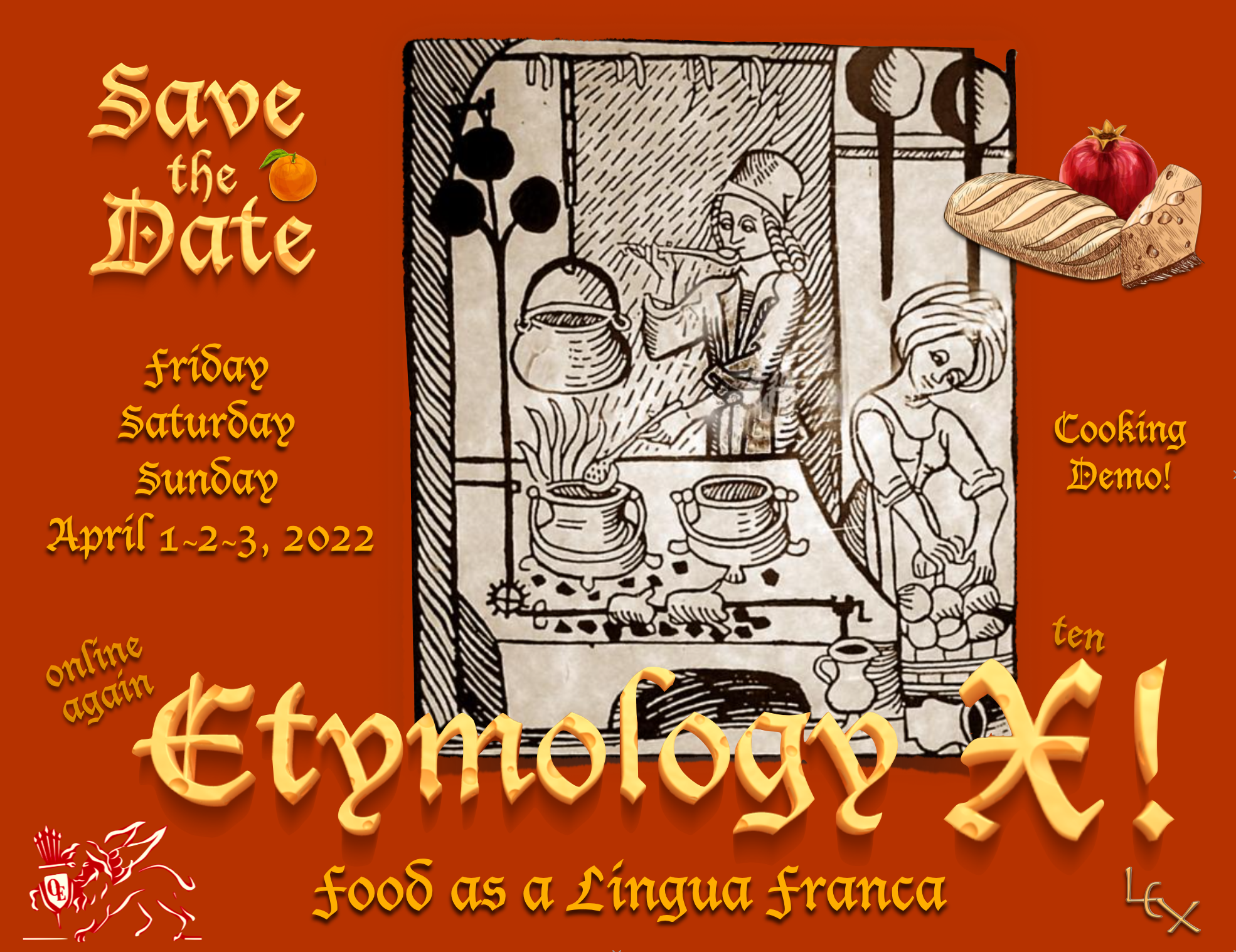Our 10th Etymology!™ conference will take place Friday, Saturday, and Sunday, April 1st, 2nd, and 3rd.
The date is no joke.

An EarlyBird registration discount will be made available later this month, but to qualify, you have to (a) be a paid Shameless Spelling subscriber, and (b) pay the fully refundable $100 conference registration deposit.
Our theme this year is Food as a Lingua Franca. English was born long before GrubHub and UberEats, but people have always traveled for food, and food is one of the vectors of both the spread of English, and its infiltration.
The story begins, perhaps, with the search for arable acreage. According to The Anglo-Saxon Chronicle, the first Germanic invaders reported back to the mainland on "the worthlessness of the Britons, and the richness of the land.” The Vikings ostensibly set out seeking wealth in Britain's trade ports, but upon discovering the fertile farmland of Britain, many a raider took a wife and settled down on the island to cultivate the earth. The Normans brought French names for foods, plant and animal alike. We’re not really sure whether pudding is from Latin via French, or a native Germanic source.
The Age of Exploration introduced a whole new culinary lexicon to English, from the New World’s squash and maize to slippery Bob and pan jam Down Under. The East India Tea Company, founded around 1600 to import Indian tea, spices, and exotic goods to Europe, not only ended up importing new alimentary words, but also opening an early and important door to modern linguistic study.
While we had hoped to be in person for number 10, live gatherings still seem like a recipe for disaster. (Get it? Recipe?) So we will plan to meet online for our third year. Join us in the Zooms as we investigate the etymological effects of food on English and its orthography, and explore gustatory influences in the Online Etymology Dictionary. Deepen your understanding of many common English food words, and bring your own culinary questions to the table. (To the table. See what I did there?
The reach and impact of the Online Etymology Dictionary is unparalleled around the world, and our community of orthographic scholars continues to demonstrate the benefits from our joint work. Enjoy an introductory session on Friday, the main theme on Saturday & Sunday, or all three days!
Just as we did last year, we will offer a special online cooking class on Saturday evening. Join us with home chef Amy Magnafichi-Strong, who will present a dinner that has undergone a “translation” of sorts — one that has played a role in the melting-pot history of English. Participants will receive a shopping list and recipe ahead of time, with instructions from Amy over Zoom. Includes wine pairings!
I'll never forget the first time I met Doug Harper, in 2013. It was the night before our first Etymology!™ conference, at a Friends school in greater Philadelphia. We had been corresponding for a couple of years, and I strong-armed him into doing the conference with me. We met at an Asian fusion restaurant. They had Thai, Chinese, Indian, Vietnamese, and more.
Doug perused the considerable menu, and when the waitress came to take our order, he said, "I'll have the Evil Jungle Princess."
Since then, we've hosted eight more Etymology!™ weekends in four states. It would've been five had COVID stayed in its cage. Our shared study trip to France in 2017 was a highlight of my life, and The Bastard Tour to Normandy in 2020 was well underway before the pandemic decapitated it. Sigh.
I hear plenty from the quarters that are pretty sick of online study, but I remain grateful that our people can gather together, however imperfectly, in safety as well as in curiosity and celebration. Maybe we'll gather liveagain in 2023, who knows?
In the meantime, we offer Etymology!™ X, online, as food for thought.
